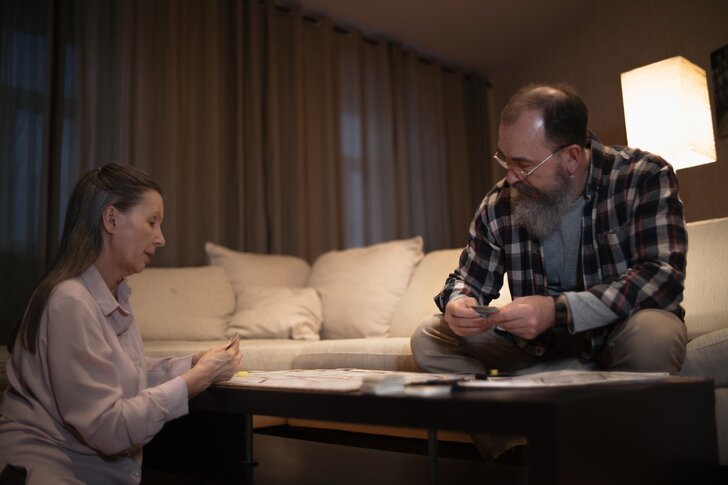Do little things like your partner chewing food, talking over the phone loudly, snoring at night, or leaving stuff on the bed irritate you? Well, you're not alone!

Kampus Production/Pexels | Since the pandemic, couples have spent most of their time together. But no matter how much they love each other, the need for personal space is consistent
Ever since the pandemic, couples have been spending most of their time together. For almost a year, they've been performing every task as a team. But with the whole WFH scenario snowballing into somewhat of a permanent setting, some have started realizing that no matter how much they love their better halves, the need for personal space is consistent.
And that’s where a sleep divorce comes into the picture!
So what's a sleep divorce?
A sleep divorce is basically an arrangement between a couple whereby individuals decide they need separate sleeping arrangements for a good night's sleep. That being said, it doesn't necessarily mean the couples will be sleeping in different rooms. Couples could sleep in different beds or at different times, depending on what they're comfortable in.
There could be numerous reasons why couples opt for a sleep divorce, but the basic one is to spend some quality time alone. If you've been planning to confess this to your partner but aren't sure about how to do so, here are a few tips that might help you out.

Mikhail Nilov/Pexels | There could be numerous reasons why couples opt for a sleep divorce, but the basic one is to spend some quality time alone
#1 - Remind yourself, sleeping alone doesn't mean the end of your relationship
If you've decided that sleeping solo is what you need for a few months or maybe for the rest of your life, don't relate it to your overall relationship. Self-doubt and questioning are the first things that damage any bond. No matter how good your equation with your partner is, if you let unnecessary things trouble you, it will impact your bond one day. So try to be positive and remember that the step you’re taking is for your mental health's sake.
#2 - Try to be gentle while disclosing the issue to your partner
Usually, when an individual has trouble sleeping, his or her partner already knows about it. However, when you speak about your issues, try to be gentle in your approach. It shouldn't look like that your partner's mere existence is hampering your sleep; otherwise, things could take a wrong turn. You must know that there's an emotional bond you share with the next person, and by no means should you want to hinder it. Hence be very careful with your words and try to stick to the problem at hand.
#3 - Spend some cozy time before going to bed
Dr. Emily Jamea, Ph.D., L.M.F.T., suggests couples continue with their routine despite observing sleep divorce. Say, for example, if you and your partner like to chat before going to bed or cuddle each other or maybe watch some TV together, you should continue to do so. Jamea believes having a nighttime ritual makes sleeping separately less foreign and keeps the bond as strong as it should be.

Tima Miroshnichenko/Pexels | Experts believe having a nighttime ritual makes sleeping separately less foreign and keeps the bond as strong as it should be
#4 - Be ready for some sleep compromise
Even though your partner understands your problem, he or she might not be willing to sleep away from you every day. He or she can ask you for some compromise like sleeping away on weeknights and together on weekends. Just like that, you can have your own relationship terms and live peacefully in each other's company.
To sum it up
Hoping that you might have gone through all the points listed above, we think now you'll have a clear idea of what a sleep divorce looks like and how it can be pulled off without hurting the other person. So, when are you going to pop the question?
